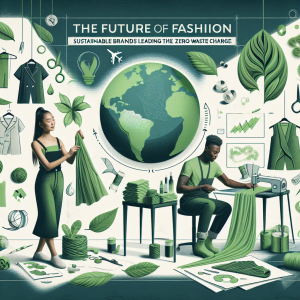Green energy, defined as energy derived from natural sources such as sunlight, wind, and water, plays a pivotal role in sustainable development. Unlike fossil fuels, which are finite and environmentally detrimental, green energy presents a cleaner alternative that can lead to an ecologically balanced and economically viable future. The impact of green energy on sustainable development is profound, touching various aspects of society, economy, and the environment.
The transition to green energy is crucial in mitigating climate change, one of the key pillars of sustainable development. By reducing greenhouse gas emissions, renewable energy sources help curb global warming, benefiting ecosystems and human health. For instance, the use of solar panels and wind turbines significantly lowers carbon footprints, which in turn decreases air pollution and its associated health risks, such as respiratory diseases and cardiovascular problems. Investing in green energy is thus an investment in public health, reducing healthcare costs and enhancing quality of life.
Economically, green energy drives innovation and job creation. The renewable energy sector has proven to be a significant job market, employing millions globally. In 2021, the International Renewable Energy Agency (IRENA) estimated that the sector employed over 12 million people worldwide. This growth is expected to continue as technology advances and investments in green infrastructure increase. Jobs in solar panel manufacturing, wind turbine maintenance, and biofuel production contribute to economic resilience, reducing reliance on imported fossil fuels and enhancing energy security.
Furthermore, green energy initiatives often lead to the development of new technologies and industries. Breakthroughs in energy storage, like lithium-ion batteries and smart grid technologies, have vastly improved energy efficiency and grid reliability. These innovations not only allow for better management of energy resources but also open new business opportunities, encouraging entrepreneurship and investment in sustainable technologies.
On a societal level, green energy contributes to social equity and energy access. Traditionally, rural or marginalized communities have limited access to reliable energy, but green technologies like off-grid solar power systems and micro-hydroelectric projects offer affordable and sustainable solutions. This democratization of energy access empowers communities, supporting educational and economic opportunities by enabling access to technologies that improve quality of life, such as lighting, heating, and digital connectivity.
Green energy also plays a vital role in the responsible use of natural resources, promoting sustainability in production and consumption. For example, bioenergy utilizes agricultural residues and organic waste, converting them into usable energy and minimizing landfill waste. Similarly, hydropower projects, when managed sustainably, can generate electricity without depleting local water resources or harming aquatic ecosystems. Adopting such practices ensures that the use of natural resources meets current needs without compromising future generations.
In urban areas, green energy is integral to sustainable urban development. Cities are major contributors to pollution and energy consumption, making sustainable urban planning essential. By integrating green energy solutions like solar panels on buildings, electric public transport, and energy-efficient infrastructure, cities can reduce their ecological footprint and enhance the quality of urban life. These efforts are often supported by policy frameworks that incentivize green practices, showcasing the synergy between policy and technological innovation in achieving sustainability goals.
Despite these advances, challenges remain in the widespread adoption of green energy. Key among them are the initial investment costs and the need for supportive policy environments. However, as technology becomes more cost-effective and countries around the world commit to renewable energy targets, these barriers are expected to diminish. International cooperation and innovative financing models, such as green bonds and public-private partnerships, are essential in overcoming these hurdles, ensuring that green energy fulfills its potential in driving sustainable development.
In conclusion, green energy is a cornerstone of sustainable development, offering environmental benefits that promote economic growth and social equity. It represents a pathway to a resilient, low-carbon future where economic activities do not compromise the environment but coexist harmoniously with it. By embracing green energy, nations can address critical issues like climate change, energy security, and social development, shaping a sustainable world for present and future generations.


